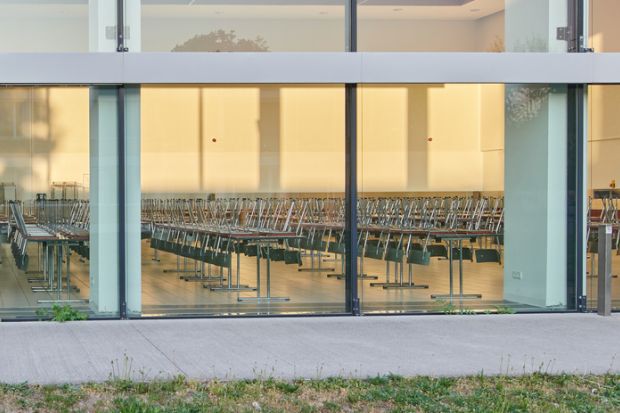Latvia’s student body is continuing to shrink despite government efforts to make study more affordable for disadvantaged students.
Figures from the Central Statistical Bureau of Latvia show that just over 26,000 fee-paying students enrolled for the 2022-23 academic year, the fewest in a decade, with the slide continuing despite last year’s expansion of a scholarship programme that was introduced in 2021.
Latvian universities and their students are suffering from the effects of chronic underfunding and demographic decline, but unlike their counterparts elsewhere in Europe, they must also contend with massive emigration and hyperinflation.
All the Baltic states have seen their populations shrink since their independence from the Soviet Union in 1991, but Latvia’s losses have been particularly severe; the country has lost almost one-third of its population in the past 30 years, with four-fifths of that resulting from emigration.
Jānis Bernāts, secretary general of the Council of Rectors of Latvia, said the proportion of students with state-funded places has remained at about 40 per cent for decades, and the declines are coming among those who fund their own studies. “Unlike in the Nordic countries and many in continental Europe, the majority of our students pay for their studies themselves; therefore, in the conditions of the increasing cost of living, we still have a lot to do to ensure the accessibility of studies,” she said, adding that this was a stated priority for the government of prime minister Krišjānis Kariņš, which took office in December.
At 21.6 per cent, inflation in the country of just 1.8 million is the highest in the eurozone, according to January estimates from Eurostat. Liene Levada, president of the Student Union of Latvia, told Times Higher Education that while the scholarships were a “great addition” to accessibility efforts, the monthly payments of €160 (£142) were “not enough” in the context of soaring living costs.
The students’ union is conducting a survey to unpick the factors driving so many young people away from domestic study and into work or universities abroad. Ms Levada said that while universities could counter declines with international recruitment, doing so should not add further strain to already overstretched resources.
Latvia has about 10,000 international students, most of whom studied previously in India, Uzbekistan, Ukraine or Germany. “We have to ensure that our higher education system is maintaining such quality that both Latvian and international students want to study here, and we also have to make an environment that Latvian students want to return, if they’re going to study abroad,” said Ms Levada.




